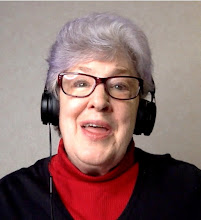Note that my subject line doesn't say I quit being a recovering workaholic. Nor does it say I quite being a workaholic!
Having been immersed in what I call the Girl Scout Badge Syndrome, simply defined as accumulating as many badges on one's sash as is more than humanly possibly, I've been wanting to call it quits for a number of years. And, yet, new ventures keep beckoning - including, this week, getting a new website so that I can develop online courses for at least some of what I teach. That's hours and hours of work right there since, naturally, it all has to be perfect!
With no therapy available in Sapporo, I decided to seek online support and joined an egroup list called Recovering Workaholics. What I discovered is, first, that even many of those people, or at least the ones who posted, didn't truly understand workaholism. They were talking, for example, about bosses who expected too much of them. My expectations of myself come entirely from within. I can't rest until the job is done, and I'm not satisfied until the job is done extremely well, all of which leaves me with no rest.
Then I made the realization that belong to yet another egroup list was a source of stress since I started saving messages in a folder - ones that I wanted to respond to but didn't have the time to (and know I'll never have the time to) and ones that I want to reread some day (not knowing when that some day would ever come). I began accumulating more and more, and the list ended up feeding my workaholism rather than even beginning to heal it.
So I ended up unsubscribing from the list. I left without even saying goodbye, which went against everything I believe about being polite, even though I hadn’t “bonded” with any of the people on the list, as of yet. Then I got even more drastic. I deleted the whole folder. I didn’t keep a single message or a single address. And since I’ve unsubscribed, I can’t access the messages or any of the addresses on the list. It was the best move I could have made towards recovery from workaholism – quitting the Recovering Workaholics list.
There's a whole lot of quitting yet to go. In the case of workaholics like myself, quitters can be winners!
Presidential politics, April 19 — mouthy Jesse Ventura, Luciferian RFK Jr,
Watermelon Oreos
-
I had already written this up yesterday, but we now have a new top story!
Jesse "the Body" Ventura (because his stanners hate that) now says he can
beat ...
19 hours ago








